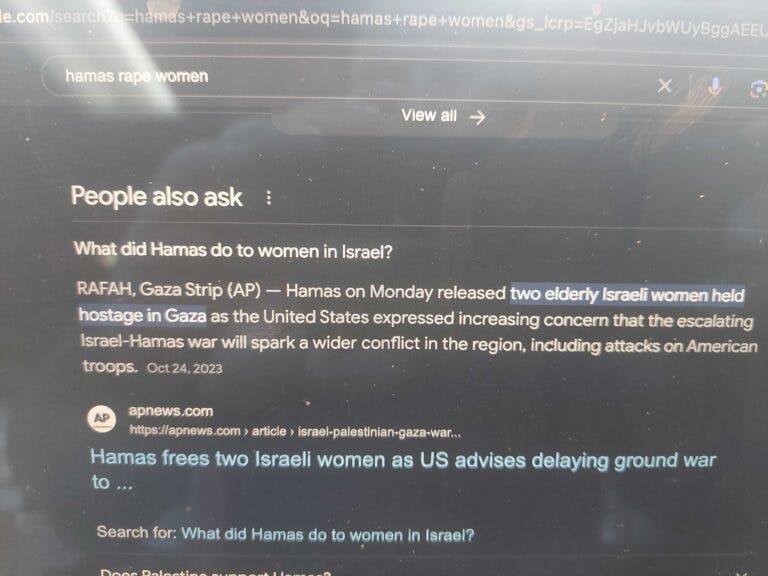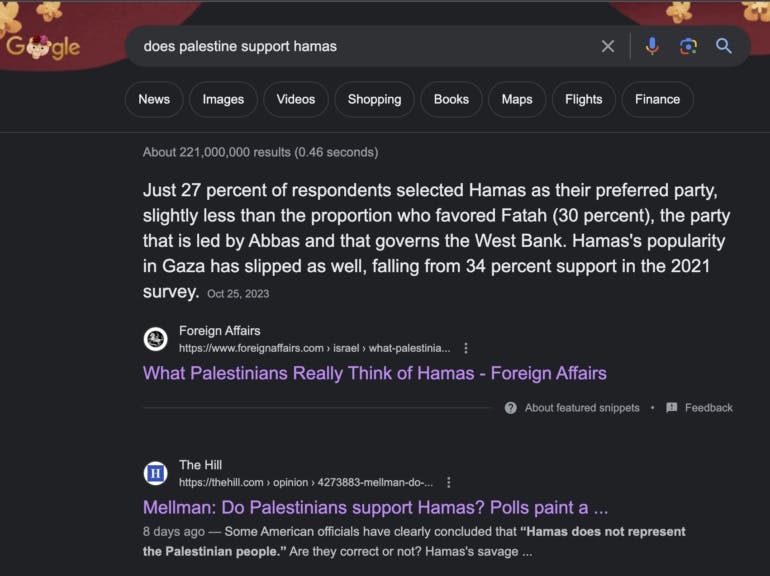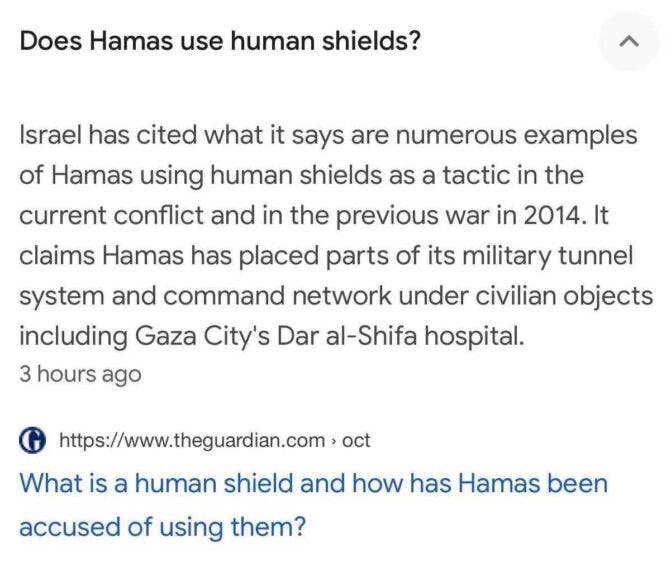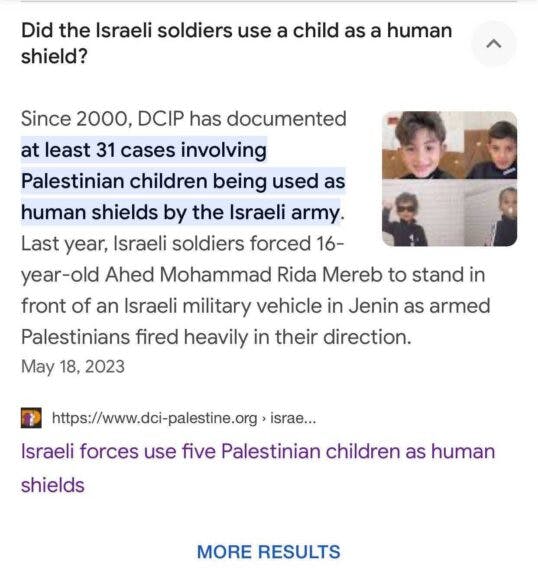
Google search is burying news articles explaining Hamas’ terrorism under curated pull-quotes that seek to make a false equivalence between Israel and the terrorists, a Daily Wire review of search results conducted this week found.
If a user searches “Hamas rape women,” before showing the bountiful search results describing sick sexual assaults and war crimes, Google injects a large text section saying “What did Hamas do to women in Israel?” Incredibly, it answers that the most notable thing that Hamas does to women is release them: “Hamas on Monday released two elderly Israeli women held hostage in Gaza,” it says, pulling from the Associated Press, which once shared office space with Hamas.
The apparent bias and misinformation comes in the form of a section labeled “People also ask,” which redirects users from what they had searched to something else entirely, then shoves an answer in their face without the need to click any link — likely causing many people to simply accept the answer instead of reading full articles from search results.

If you ask, “Does palestine support hamas,” Google will use another feature, called “featured snippet,” to bury its own search results and instead put a paragraph in large font at the top telling you, “Just 27 percent of respondents selected Hamas as their preferred party.”
The search giant says it uses snippets to “help people more easily discover what they’re seeking.”
“Google’s search results sometimes show listings where the snippet describing a page comes before a link to a page,” it explains. “We display featured snippets when our systems determine this format will help people more easily discover what they’re seeking.”
But the “featured snippet” from Foreign Affairs is dramatically different than the picture that users would get by clicking on the first search result — which they would be more likely to do if the “snippet” weren’t placed on top. The first result, a column in The Hill, says that not only did Hamas beat the other political party Fatah in the most recent election in 2006, but that according to recent polls, “If new presidential elections were held with two candidates, Fatah’s Mahmoud Abbas and Hamas’s Ismail Haniyeh, … Haniyeh would win in a landslide with 58 percent.”

In Gaza particularly, “Gazans give Abbas just 33 percent, while 64 percent would vote for Hamas’s Haniyeh.” The article also says that even if Palestinians disagree with Hamas, it’s not because they disagree with terrorism or anti-Semitism. It says:
By 70 percent to 28 percent, Palestinians oppose a two-state solution — ‘the establishment of a Palestinian state alongside Israel.’
An even larger number — 76 percent to 21 percent — oppose a ‘one state solution … in which the two sides enjoy equal rights.’
Given a choice among three options for ‘ending the occupation and building an independent state,’ 21 percent prefer ‘negotiations,’ 22 percent ‘peaceful popular resistance’ and 52 percent select ‘armed conflict.’
When you search Israel-related topics, Google puts in its “People also ask” section the question, “Does Hamas use human shields?” Then it gives a vague answer, pulling from the United Kingdom-based Guardian, that says, “Israel has cited what it says are numerous examples of Hamas using human shields as a tactic.”
Then it makes it seem like Israel does the same thing or worse, stating it as a fact instead of an allegation, and pulling from a Palestinian activist group instead of a media outlet. “Since 2000, [Defense for Children International Palestine] has documented at least 31 cases involving Palestinian children being used as human shields by the Israeli army,” it says.


In text appearing below another suggested question — “What is the cause of Israel Palestine violence?” — Google provides a paragraph of text pulled from Wikipedia saying, “Zionists sought to establish a homeland for the Jewish people in Ottoman-controlled Palestine.”
It says people also ask, “Why is Israel at war with Palestine?” Its answer: “The current Israel-Palestine status quo began following Israeli military occupation of the West Bank and Gaza.” (“Palestine” is not a country that Israel is at war with. It ceded political control of the roughly 140-square-mile region to the Palestinians in 2005, but it is still part of Israel.)
Google then asks and answers another question: “Why is Israel being attacked?” It answers by blaming Israel, saying, “The attack seems to be partly fueled by anger at Israel’s actions in Gaza.”
It’s not clear why, when people search for something, Google thinks they would want to know what “People also ask” before they even see the results of what they did ask.
The questionable content appears sometimes, but not others, based on unknown factors. A Google spokesperson said “this is a mischaracterization of the results Google shows. Search prominently surfaces a range of high quality information on these topics. The snippets in these features are generated automatically and only show alongside other web results when our systems deem them relevant – there’s no manual curation involved.”
No comments:
Post a Comment